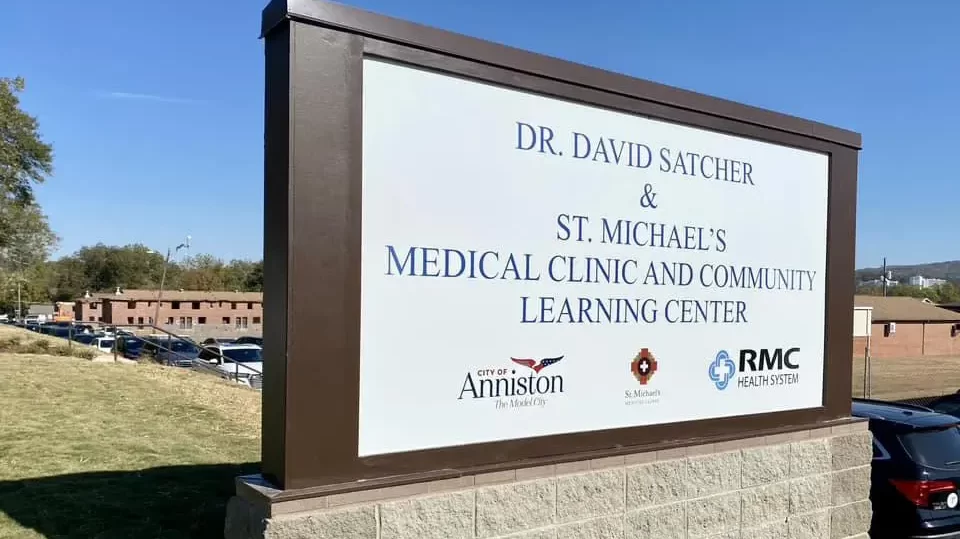|
Getting your Trinity Audio player ready...
|
The non-profit Dr. David Satcher & St. Michael’s Medical Clinic and Learning Center in Anniston recently received a $25,000 grant from the Alabama Power Foundation, allowing the clinic to expand its services. Starting in 2025, the clinic will be open an additional fifth day each week to provide mental health treatment.
The clinic is partnering with the United Way of East Central Alabama to introduce a program called Thrive, which seeks to address mental health crises among underserved populations.
The rates of persisting mental illness and substance abuse issues are higher among certain groups, including veterans, individuals who have experienced traumatic events early in life, and victims of abuse. Rural and minority populations also remain undertreated for mental illness and substance abuse problems due to lower access to care and social stigma.
“It means access to health care for the most vulnerable in our community and that’s what we’re excited about,” said Nanette Mudiam, executive director of the clinic.
“We believe in partnering with groups that are doing great things, and that’s what you all are doing here at this clinic. Thank you for inspiring us as a company,” said Terry Smiley, vice president of the Eastern Division of Alabama Power. “It’s incredible work that you all are doing, so it’s a privilege for us to present this check today.”
According to the World Population Review, Alabama ranks 44th in overall mental health standing among the United States. Mental Health America ranks the state 36th in adult mental health and 32nd in youth mental health as of 2024.
In a 2019 survey conducted by Alabama Public Health, respondents ranked mental health and substance abuse as their greatest health concern in the state. According to the Substance Abuse and Mental Health Services Administration (SAMHSA), 41 percent of adult Alabamians sought medical treatment for mental health issues between 2017-2019.
In 2019, suicide was the twelfth leading cause of death in Alabama. The CDC reports the death rate by suicide in Alabama at 16.3 percent, the 26th highest in the nation.
Alabama lawmakers have made recent efforts to improve mental healthcare in the state. State legislators introduced identical bills in the House and Senate in April which would give probate judges the ability to refer people dealing with both mental health and substance abuse disorders to professional treatment, keeping those patients out of the criminal justice system.
Kimberly Boswell, commissioner of the Alabama Department of Mental Health, supported the bills’ efforts to provide probate judges with the “clarifying language they need” to get people proper treatment.
U.S. Sen. Katie Britt, R-AL, has also expressed concern over the broader mental health crisis facing the country. In September, Britt co-sponsored a bill with Sen. John Fetterman, D-PA, that would add warning labels to social media to alert users to the potential mental health risks associated with using such platforms.
Last month, U.S. Rep. Terri Sewell, D-AL, also announced that Alabama would be receiving $1.2 million from the U.S. Department of Health and Human Services (HHS) Health Resources and Services Administration (HRSA) to expand programs in Jefferson County and the Black Belt that address mental health and substance abuse.
The $600,000 awards to both Alabama Regional Medical Services (ARMS) in Birmingham and Rural Health Medical Program in Selma were part of a $240 million investment by the Biden-Harris Administration to combat the mental health and opioid crises.






















































